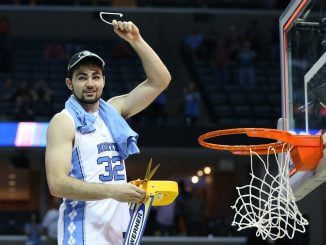CHAPEL HILL — A subcommittee of the UNC Board of Governors voted on Tuesday 5 to 1 to move forward a new policy that would remove the UNC Center for Civil Rights’ ability to represent parties in litigation outside of a law school clinical program. The debate will now move to the full UNC Board of Governors.
The public comment session was one of several on this issue. In May, the director of the UNC Center for Civil Rights, Theodore M. Shaw, spoke to the committee outlining the mission of the center which he says is to provide law students with real-world litigation experience and to continue the legal battles over civil rights.”It represents an embodiment the reconciliation with African-Americans in N.C,” said Shaw. “It trains new generations of civil rights lawyers to continue the work of eliminating the legacy of racial discrimination.”
Shaw also told committee members that the dean of UNC Law School, Martin Brinkley, approves any cases that the center files. Among the most recent is an amicus brief the Center filed in the lawsuit over the Voting Rights Act in N.C. The center staff includes a director, two civil rights attorneys and administrative support. It operates on grants and donations but uses state university resources and tuition for things like payroll and benefits.Supporters of the proposed policy say the center has veered away from its stated clinical and educational purpose. Under accreditation standards set by the American Bar Association, six hours of “experiential education” must either have research or student education as its primary purpose. UNC System Board of Governors member Steve Long, a Raleigh lawyer, proposed the policy change, saying that the UNC Center for Civil Rights has used its resources not for primarily educational purposes but instead has full-time lawyers conducting litigation. He amended the policy to exclude educational law clinics that operate within American Bar Association standards, like the ones serving low-income taxpayers and veterans at N.C. Central Law School.
“Permitting academic centers to engage in litigation opens the door to center personnel using the litigation to further their own personal agendas. This has happened here,” said Long in a memo earlier this month, providing examples of conflict within the center to his fellow board members. “The managing attorney for the UNC-CH Center has used the Center and its ligation activities to further his support of the Moral Monday protest movement. The 2013-2014 UNC Law School report said that one student ‘worked with the UNC Center for Civil Rights to help the legal needs of Moral Monday Protestors.'”
Emily Slusser, a rising junior at Meredith College and member of the North Carolina Federation of College Republicans, was among the students who showed up to demonstrate outside the meeting in support of ending the center’s authority to litigate or ending its use of public resources. “They say they are privately funded and they say they’re giving experience to law students, but they’re not,” said Slusser. “They’re using outside counsel and hiring these other lawyers with taxpayer resources to go litigate and not giving the law students the experience they need to go into the fields they want to.”
Administrators at UNC School of Law and N.C. Central Law School also argued to board members that the policy limiting law school clinics’ authority to litigate against the government to private law schools like Duke, Elon, Campbell and Wake Forest puts public law schools at a professional disadvantage as they try to attract and train law students.
The UNC Board of Governors is scheduled to meet in September where they may take up the recommendation of the committee. In the meantime, UNC System President Margaret Spellings has issued a moratorium on the center directing that they not take on any new cases until the issue is decided by the Board of Governors. “This is a critical time in American higher education, as institutions and systems across the country are tackling issues of student success, accountability, and efficiency. Here in North Carolina, we need to educate more of our citizens to answer the demands of our growing, dynamic economy and the responsibilities of civic life. And the University will remain focused on our most urgent imperatives of greater educational access and opportunity for all North Carolinians.”



